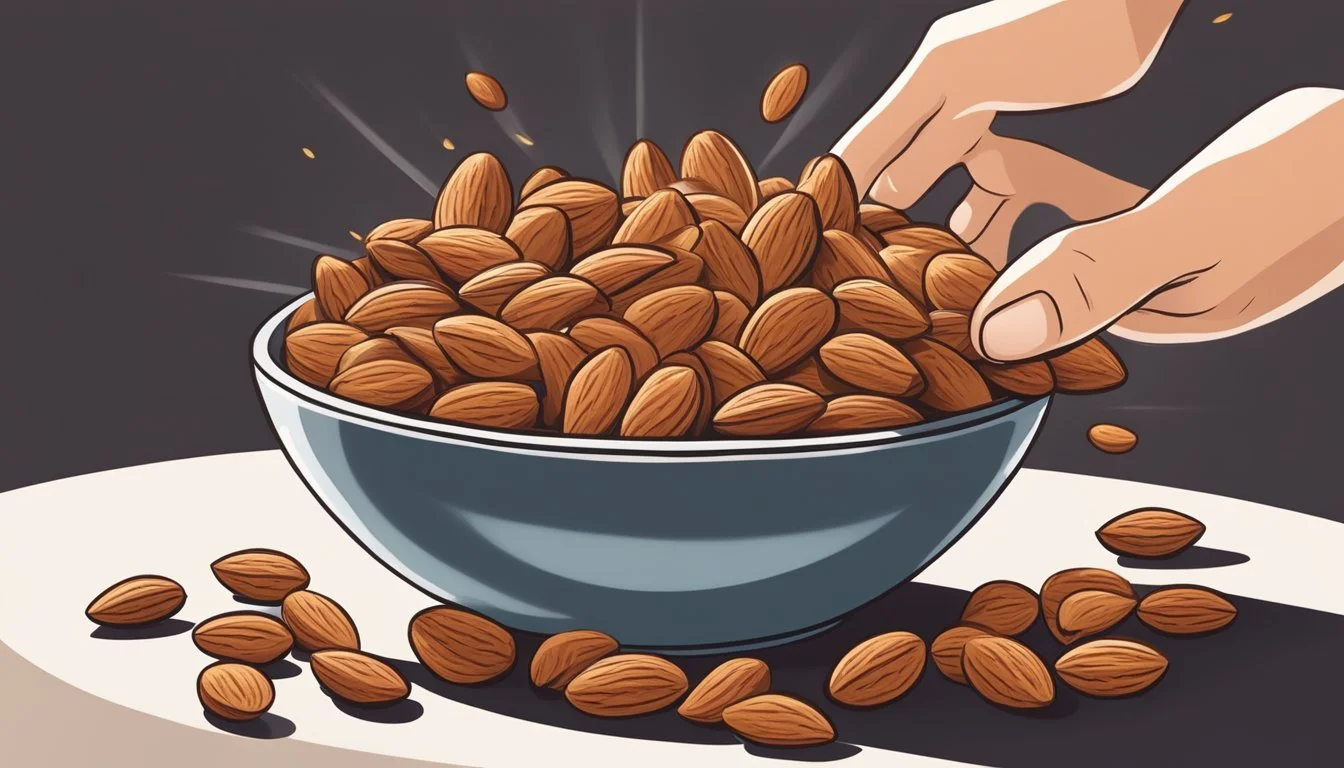Migraine-Fighting Foods: Natural Relief for Headache Sufferers
Migraines can be debilitating, causing significant pain and disruption to daily life. Many individuals seek natural remedies and lifestyle adjustments, including dietary changes, to help manage and alleviate these painful episodes.
Certain foods may provide relief or help prevent migraines from occurring. By adopting specific dietary habits and understanding which foods may trigger or mitigate migraine symptoms, individuals can take proactive steps toward better managing their condition. This article explores the intricate relationship between diet and migraine relief, offering insights and practical tips for those affected.
1) Ginger Tea
Ginger tea is commonly recommended for its potential to relieve migraines. Ginger, known botanically as Zingiber officinale, contains compounds that are believed to reduce inflammation and nausea. These properties make it a popular choice for those seeking natural migraine remedies.
To prepare ginger tea, start by boiling 2 to 4 cups of water in a saucepan.
Add ¼ to 1 cup of chopped or grated ginger, along with a sweetener, such as sugar or honey, to taste. Simmer the mixture for 5 to 10 minutes, then strain before drinking.
Several studies suggest that ginger can be effective in reducing migraine symptoms. One method is to mix one-eighth of a teaspoon of powdered ginger in water and drink it at the onset of a migraine.
Ginger tea is easily accessible and can be found in most grocery stores and pharmacies. It is also considered safe for use, even during pregnancy. This makes it a convenient option for those dealing with frequent migraines.
2) Peppermint Oil
Peppermint oil is recognized for its potential in alleviating migraine symptoms. It contains menthol, a compound known for its cooling effect. This cooling sensation can help reduce the intensity of acute migraines when applied topically.
One study highlighted that a topical gel with 6% menthol can decrease pain intensity within two hours.
Applying peppermint oil to the forehead or temples can provide relief due to its numbing effect. This can lessen joint and muscle pain as well as help with itchy skin.
Peppermint oil also promotes relaxation and stress relief. This can be beneficial as stress is a common trigger for migraines. Its natural calming properties can help alleviate tension, reducing stress-related migraine triggers.
Using peppermint oil can contribute positively to managing migraine attacks. It offers a non-invasive option that individuals can easily integrate into their routines.
3) Spinach
Spinach is a nutrient-dense leafy green that can be beneficial for those suffering from migraines. It is rich in magnesium, a mineral known to play a key role in reducing migraine frequency and intensity.
The high levels of magnesium in spinach help relax blood vessels, potentially alleviating some of the pressure associated with migraine headaches. Dark, leafy greens such as spinach provide an easy way to incorporate magnesium into the diet.
Spinach is also a good source of riboflavin (Vitamin B2) and folate, both of which have been associated with migraine prevention in various studies. Including spinach in meals, whether in salads, smoothies, or cooked dishes, can be a practical approach to managing migraines.
This versatile vegetable can be paired with other migraine-fighting foods such as avocado or chia seeds to enhance its benefits. Regular consumption of spinach might help maintain balanced magnesium levels, contributing to a reduction in migraine episodes.
4) Fatty Fish
Fatty fish are rich sources of omega-3 fatty acids, particularly eicosapentaenoic acid (EPA) and docosahexaenoic acid (DHA). These nutrients have been linked to numerous health benefits, including potentially reducing migraine frequency and severity.
Studies have shown that increasing the intake of fatty fish like salmon, sardines, herring, mackerel, and trout can lead to fewer headaches. This dietary change appears to reduce inflammation, which is a known factor contributing to the pain experienced during a migraine.
A clinical trial published in The BMJ involved 182 participants with chronic migraines. The trial found that those who consumed a diet high in omega-3 fatty acids experienced significant reductions in the number and intensity of their headaches.
This effect was particularly notable when compared to participants who consumed higher amounts of vegetable-based fats and oils. The difference suggests that the unique properties of omega-3s in fish may be particularly beneficial.
Research from the National Institute on Aging and the National Institute on Alcohol Abuse and Alcoholism supports the idea that fatty fish can help manage migraine symptoms. This dietary approach offers a natural alternative for individuals seeking relief from this debilitating condition.
5) Almonds
Almonds are a nutritious and convenient snack that may have potential benefits for those who suffer from migraines. They are rich in magnesium, a mineral that has been associated with reducing the frequency and severity of migraine attacks.
Magnesium helps relax blood vessels and can prevent the constriction and dilation issues often linked to migraines. Including almonds in your diet can help replenish magnesium levels, potentially providing relief from migraine symptoms.
Additionally, almonds contain healthy fats and proteins, which are essential for overall health. While most people can consume almonds without issues, some individuals may find them to be a migraine trigger. Therefore, it's important to monitor your body's response to almonds and consult with a healthcare practitioner if needed.
6) Yogurt
Yogurt can be a beneficial addition to the diet for those experiencing migraines. It is rich in probiotics, which help maintain a healthy gut. This can be important as a balanced gut microbiome may play a role in reducing inflammation.
Yogurt is also a good source of calcium and vitamin B2 (riboflavin). Studies suggest that riboflavin may help decrease the frequency and duration of migraine attacks. Calcium supports overall neurological function, potentially aiding in migraine relief.
People should choose plain yogurt over flavored varieties to avoid added sugars and artificial ingredients. Greek yogurt is often recommended due to its higher protein content and lower sugar. This nutritional profile makes yogurt a versatile and healthy option for managing migraines.
7) Quinoa
Quinoa is recognized as a beneficial food for managing migraine symptoms. It is a pseudo-grain rich in magnesium, a mineral known to help reduce muscle tension and nerve excitability, which can both contribute to migraines.
The high fiber content in quinoa assists in maintaining stable blood sugar levels. Fluctuating blood sugar is a known trigger for migraines.
Quinoa provides a good source of riboflavin (vitamin B2). Riboflavin has been linked to a reduction in migraine frequency and severity. This nutrient plays a role in energy metabolism and mitochondrial function.
Additionally, quinoa contains a reasonable amount of antioxidants. Antioxidants help combat oxidative stress, which is thought to play a role in the development of migraines. Thus, including quinoa in the diet could offer supportive benefits for those prone to migraines.
When preparing quinoa, it can be used in a variety of dishes. It can be boiled and used as a base for salads, added to soups, or served as a side dish. This versatility makes it easy to incorporate into meals regularly.
8) Sweet potatoes
Sweet potatoes are beneficial for individuals experiencing migraines. Their rich content in vitamin B6 helps to reduce headache severity and duration.
Additionally, sweet potatoes are high in magnesium and potassium. These minerals assist in muscle relaxation and help to alleviate tension headaches.
Vitamin A and C found in sweet potatoes contribute to overall health. Their anti-inflammatory properties can mitigate migraine symptoms.
Incorporating sweet potatoes into meals can aid in managing headaches effectively. They are versatile, easy to prepare, and nutritious, making them a valuable addition to a migraine-friendly diet.
9) Flaxseeds
Flaxseeds are often mentioned as a beneficial food for those dealing with migraines. Rich in omega-3 fatty acids, they help reduce inflammation, which can be a contributing factor to headaches.
Magnesium is another key nutrient found in flaxseeds. Magnesium has been studied for its potential role in preventing migraines. Including flaxseeds in your diet may help you maintain adequate magnesium levels.
Flaxseeds can be easily added to smoothies, salads, and other dishes. They offer a convenient way to incorporate more nutrients into your daily routine. Given their versatility, flaxseeds can be a simple addition to many meals.
Some research suggests mixed results regarding flaxseeds and migraine relief. Though they are not a guaranteed cure, their anti-inflammatory properties contribute to overall health.
Integrating flaxseeds into a balanced diet can provide various benefits, including the potential for reduced migraine frequency. This makes them a valuable food option for migraine sufferers.
10) Chamomile Tea
Chamomile tea is a popular herbal beverage known for its calming properties. It can help relax muscles and reduce tension, making it a gentle option for those suffering from migraine headaches.
One of the significant benefits of chamomile tea is its ability to promote better sleep. Improved sleep quality can lower the frequency and severity of migraines.
Chamomile also has anti-inflammatory properties that can help in reducing migraine symptoms. It can be enjoyed at any time of the day, providing a soothing effect for migraine relief.
For those with migraines, incorporating chamomile tea into their daily routine might offer a natural way to manage symptoms.
Understanding Migraines
Migraines are a complex neurological condition characterized by recurring headaches and often accompanied by other symptoms. Identifying and managing triggers is crucial in reducing the frequency and severity of migraine attacks.
What Are Migraines?
Migraines are a type of headache disorder that can cause severe throbbing pain, often on one side of the head. They are not just headaches but a debilitating condition that can significantly impact the quality of life. Migraines can last from a few hours to several days and may occur frequently or sporadically.
Migraines involve abnormal brain activity that affects nerve signals, chemicals, and blood vessels in the brain. The exact cause remains uncertain, but genetic and environmental factors seem to play a role. Treatments focus on relieving symptoms and preventing future attacks.
Symptoms and Triggers
Migraines typically go through four stages: prodrome, aura, attack, and post-drome. Not everyone experiences all stages.
Prodrome: This phase can start hours or days before the headache, including symptoms like mood changes, food cravings, and neck stiffness.
Aura: Occurring in about one-third of people with migraines, the aura phase involves visual disturbances, such as flashing lights or blind spots, and can last up to an hour.
Attack: The main phase, characterized by intense pain, sensitivity to light and sound, nausea, and vomiting. This can last from 4 to 72 hours.
Post-drome: Following the headache, individuals may feel drained, confused, or irritable for up to a day.
Common triggers include stress, hormonal changes, certain foods, alcohol, caffeine, and sensory stimuli like bright lights or strong smells. Identifying personal triggers can be key in managing migraines effectively.
Nutritional Approaches to Manage Migraines
Managing migraines can involve dietary changes that help reduce their frequency and severity. This section explores various aspects of nutrition that play a role in migraine prevention, highlights specific foods to avoid, and identifies beneficial nutrients.
Role of Diet in Migraine Prevention
Diet plays a crucial role in preventing migraines. Regular meal schedules and balanced nutrition can significantly minimize migraine triggers. It is recommended to avoid skipping meals as this can provoke headaches.
Some studies show that low-fat or vegan diets can improve migraine outcomes. An omega-3 polyunsaturated fatty acid-rich diet, specifically incorporating eicosapentaenoic acid, is also reported to reduce the prevalence of severe headaches.
Foods to Avoid
Certain foods are well-known triggers for migraines. Avoiding these can help in reducing migraine attacks. Common triggers include:
Alcohol: Especially red wine and beer
Aged Cheeses: Such as blue cheese or cheddar
Chocolate: Contains caffeine and beta-phenylethylamine, both of which may trigger migraines
Caffeine: Found in coffee, tea, and some soft drinks, caffeine can be a double-edged sword for migraine sufferers
Keeping a food diary can help identify personal triggers.
Beneficial Nutrients
Incorporating specific nutrients into the diet can be beneficial in managing migraines. Omega-3 fatty acids, found in fish like salmon and mackerel, or in supplements, have been shown to lessen migraine frequency.
Magnesium also plays a role in reducing migraines. It can be found in green leafy vegetables, nuts, seeds, and whole grains. Vitamin B2 (riboflavin) has gained attention for its potential to minimize migraine frequency. Daily supplementation with riboflavin may be effective for some individuals.
Ensuring a diet rich in these nutrients while avoiding known migraine triggers can form a vital part of a comprehensive migraine management plan.
Lifestyle Changes to Complement Dietary Adjustments
In addition to dietary adjustments, lifestyle changes such as maintaining proper hydration and establishing regular meal patterns can further aid in managing migraines effectively.
Hydration and Migraine Relief
Proper hydration is essential for overall health and can play a crucial role in managing migraines. Dehydration is a known trigger for migraine attacks. Individuals should aim to drink at least 8-10 glasses of water daily.
Starting the day with water and carrying a reusable water bottle can help maintain hydration. Foods with high water content, such as cucumbers, melons, and oranges, also contribute to daily fluid intake. Avoiding excessive caffeine and alcohol, which can dehydrate the body, is equally important.
Regular Meal Patterns
Maintaining a consistent eating schedule is critical for those prone to migraines. Skipping meals can lead to decreased blood sugar levels, which may trigger migraine attacks.
Eating three balanced meals a day, along with healthy snacks if necessary, helps in keeping blood sugar levels stable. Consuming meals at regular intervals can help prevent the onset of migraines. Including complex carbohydrates, proteins, and healthy fats in each meal ensures a balanced nutrient intake, providing sustained energy throughout the day.
By establishing regular meal patterns and avoiding skipping meals, individuals can significantly reduce the frequency and severity of migraine episodes.






